Succession is on the minds of NFL owners while meeting in Orlando. … There’s a fight brewing for control of ESPN’s parent company. … More of the NFL’s teams are solidifying plans to gain more fans abroad. … The handling of the Shohei Ohtani scandal is a situation worth covering itself. … And we look back at a pivotal point in the now booming business of international games for U.S. leagues.
—Eric Fisher and David Rumsey
|
|
|
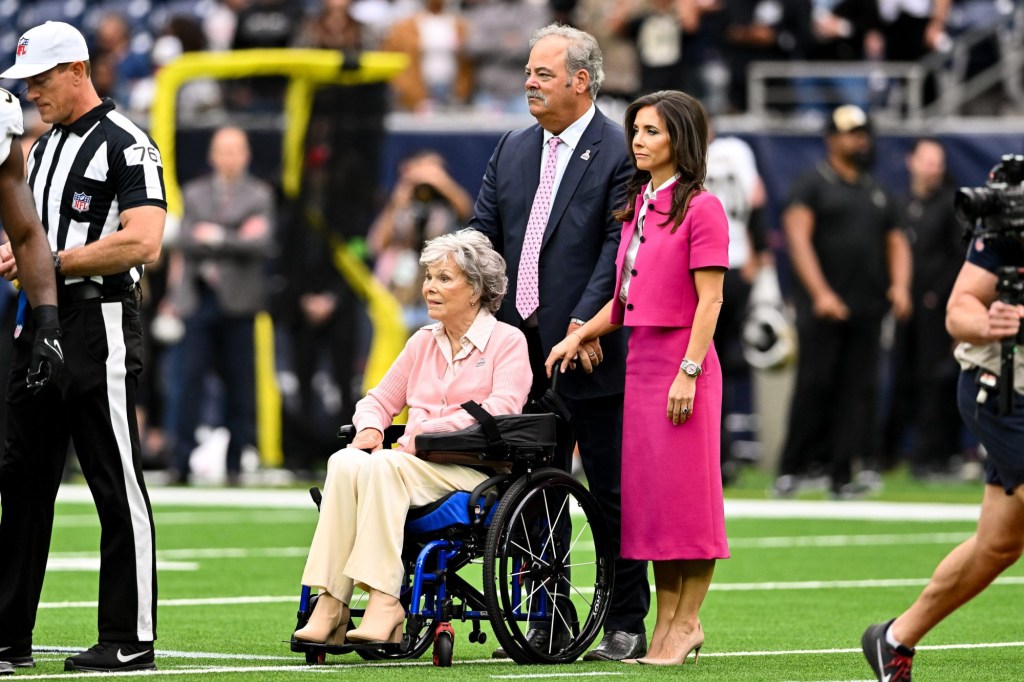
|
Maria Lysaker-USA TODAY Sports
|
NFL owners are expected to approve the principal owner designation switch to the Texans’ Cal McNair (above, center) from his mother, Janice McNair (above, left), on Tuesday, a source says. In the coming months, the owners’ finance committee is expected to approve a similar switch from 49ers owner Denise DeBartolo to her son Jed York, the source says. Only a principal owner can vote in NFL meetings, unless they designate someone else.
The two situations are different, but they are connected by a broader issue in the NFL: the transfer of teams from aging parents to their heirs.
“We’re going to have succession issues,” says Marc Ganis, a sports consultant with deep ties to the NFL. “It’s just a matter of the age of the people who own teams. So we’re going to have a number of the next generation getting involved, becoming controlling owners. In some cases, it will be well before there’s any reason for it. And, in other cases, it’ll be when events warrant. We’re going to see a number, a half dozen or more over the course of the next decade or two, of these.”
In the case of the Texans, Cal McNair battled his brother Cary in court over his effort to become guardian of their mother. Janice and Cal opposed the effort, which could have given Cary a pathway to control the team. As for the 49ers, DeBartolo has owned it since her brother, Eddie, transferred the team in 2000 to her after his involvement in a Louisiana gambling scandal. It’s not clear why the mother-to-son transfer is happening now, though Jed York has long been the face of the franchise along with his father, Dr. John York.
More to Come
Other teams where an aging parent controls the team include the Raiders, Bears, Cowboys, and Patriots.
The NFL requires families that control teams to collectively own 30% of the club, with the controlling owner share smaller, with the minimum level determined by the number of years of ownership. No shares are believed to have changed hands between the McNairs, and it’s not clear whether Jed York needs to acquire more team stock.
|
|
|
|
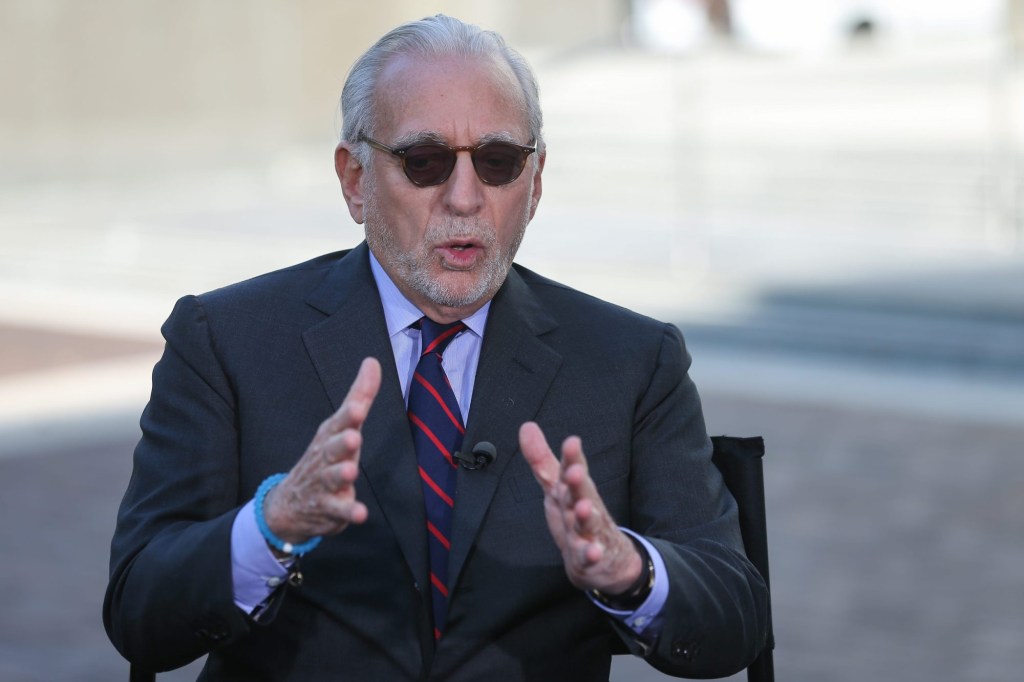
|
Kareem Elgazzar-USA TODAY NETWORK
|
Shareholder proxy fights are normally about as far from the sports world as can be imagined, and they rarely elevate to any sort of mainstream zeitgeist. But the one now emerging around the Walt Disney Co. carries major ramifications for ESPN and the future leadership of Disney and, regardless of the battle’s outcome, will render significant impacts across the sports industry.
For months, billionaire activist investor Nelson Peltz (above) and his Trian Fund Management have sought to gain two board seats when an election is held April 3 during Disney’s annual shareholder meeting. Peltz argues Disney needs to be far more aggressive on multiple fronts, including with regard to a succession plan for current CEO Bob Iger, clarifying ESPN’s digital strategy, overhauling the company’s TV and movie business, and bundling ESPN+ and Netflix.
On Monday, the divide grew as Trian additionally withheld its votes for Iger’s reelection to the board, according to a CNBC report.
Gaining Steam
Peltz has been opposed by Disney on nearly every front, but he nonetheless has engaged in a broad-based campaign to convey his message, including the publishing of several white papers. He also received a boost last week in his efforts from influential proxy adviser Institutional Shareholder Services, countering the sentiment from another adviser, Glass Lewis & Co., that is backing Disney’s slate of board nominees.
“Peltz, with his considerable experience on other boards and fiduciary duties owed to a large shareholding group, appears positioned to bring a shareholder perspective to the board,” ISS said.
But Disney is amassing widespread support on its side, with former CEO Michael Eisner, Star Wars creator George Lucas, JPMorgan Chase CEO Jamie Dimon, the Disney family, and Steve Jobs’s widow, philanthropist Laurene Powell Jobs, among those backing the company. Disney also has the benefit of recency as company shares have risen nearly 30% so far this year.
“Bringing in someone who doesn’t have the experience in the company or the industry to disrupt [Iger] and his eventual successor is playing not only with fire but earthquakes and hurricanes as well,” Eisner posted on X.
Even before the recent run-up in lobbying, The Wall Street Journal branded the battle as potentially the most expensive shareholder fight, with more than $70 million projected to be spent.
Bristol Impacts
The outcome of the proxy fight, in particular, could render seismic impacts on ESPN. Currently, the sports media giant is in the midst of several major initiatives, including the development of a stand-alone, direct-to-consumer version of the network debuting next year, a new sports betting partnership with Penn Entertainment, a potential partial equity sale, and a much-debated streaming joint venture with Fox and Warner Bros. Discovery.
Peltz, however, argues that Disney’s ESPN and sports product strategy is “chaotic,” too risk-laden, and not sufficiently focused on financial returns.
“While we are open-minded, we are skeptical that a flagship ESPN DTC service is a viable business model given rising sports programming costs and the consumption patterns of sports fans,” Peltz and Trian said in an online presentation on their vision for Disney. “In our view, ESPN will always work best as a wholesale product that is bundled with a broader package of entertainment and sports content.”
|
|
|
|
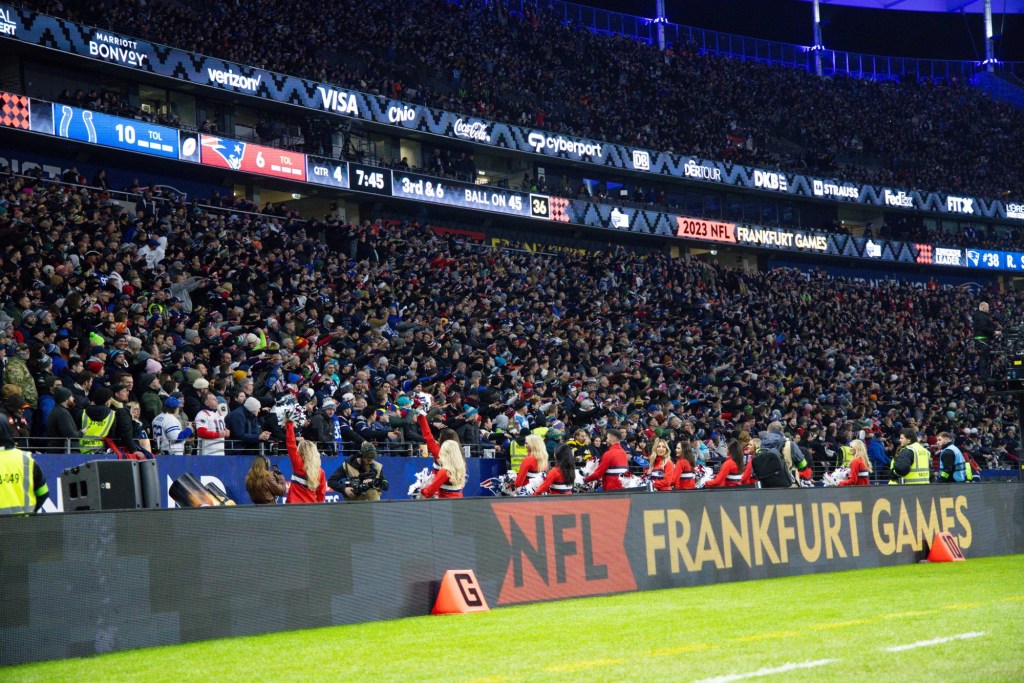
|
Nathan Ray Seebeck-USA TODAY Sports
|
The NFL program that allows teams to market overseas is expanding by four teams and five new markets, leaving only seven of the league’s 32 teams not participating with 19 countries now part of the initiative. The league made the announcement at the owners’ annual meeting in Orlando.
Before the program’s inception in 2022, NFL teams were not allowed by league rules to market overseas, with the exception of the Jaguars in the U.K. The program started with 18 teams in eight countries.
New this year are the Giants with Germany; the Lions with rights to Austria, Canada, Germany, and Switzerland; the Colts with Austria and Germany; and the Browns with Nigeria, which is a new market.
The other four new markets are Japan and South Korea—claimed by the Rams, who also have China—and Argentina and Colombia, both claimed by the Dolphins.
There are now 10 teams with rights to Germany, which has hosted widely successful games over the last two years. That equals Mexico as the most in any market.
The dedication to the markets vary widely. Some clubs are content with fan clubs and hosting a flag football clinic, while others like the Chiefs spend seven figures alone in Germany. But teams are stepping up to add new markets.
In addition to the new teams and markets, several clubs added existing markets to their portfolio:
- Rams: Have Australia, China, Mexico, and New Zealand, adding South Korea and Japan
- Dolphins: Have Brazil, Spain, and the U.K., expanding to Argentina, Colombia, and Mexico
- Patriots: Have Austria, Germany, and Switzerland, adding Brazil
- Jets: Have rights in the U.K., adding Ireland
- Steelers: Have Mexico and Ireland (both Republic of Ireland and Northern Ireland), expanding to Germany
- Seahawks: Have Canada, expanding to Austria, Germany, and Switzerland
Teams are not guaranteed when they play overseas to compete in one of their global market territories, said Peter O’Reilly, the NFL executive vice president of international events, though that is what the league will try to do. Beginning next year, the NFL will play up to eight games per year outside the U.S. The seven teams not in the global program are the Bengals, Bills, Chargers, Commanders, Packers, Ravens, and Titans.
|
|
|
|
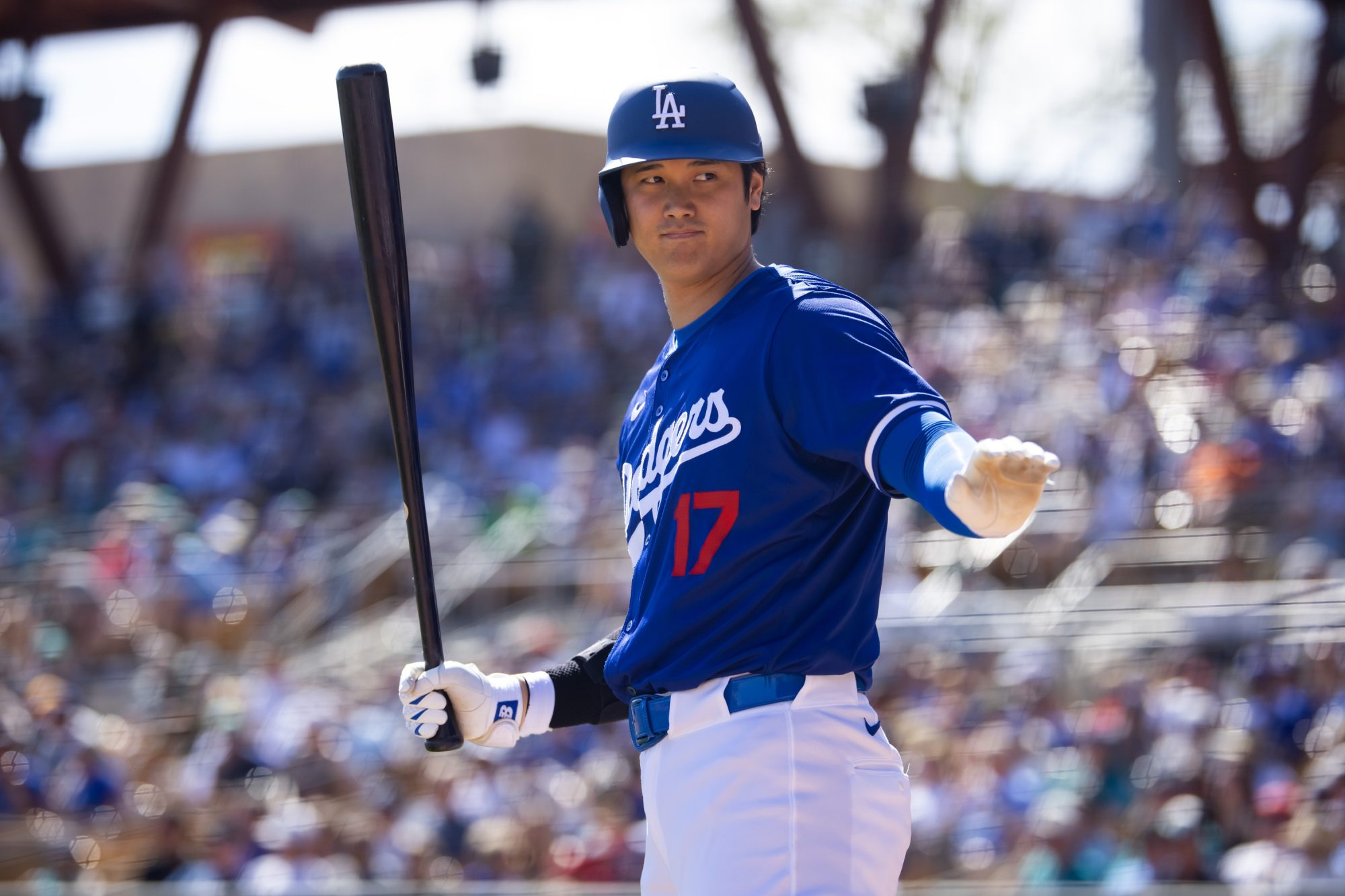
|
Mike Paul has worked as a public relations and reputation management consultant for more than 25 years. He founded his firm, Reputation Doctor, in 2014, with an emphasis on helping people deal with disasters. Paul joins the show with an immediate reaction to Shohei Ohtani’s press conference Monday, in which the Dodgers’ star addressed issues related to the $4.5 million in gambling debt payments made to bookie Mathew Bowyer’s associate, and what really happened between Ohtani and his now former interpreter, Ippei Mizuhara.
🎧 Listen and subscribe on Apple, Google, and Spotify.
|
|
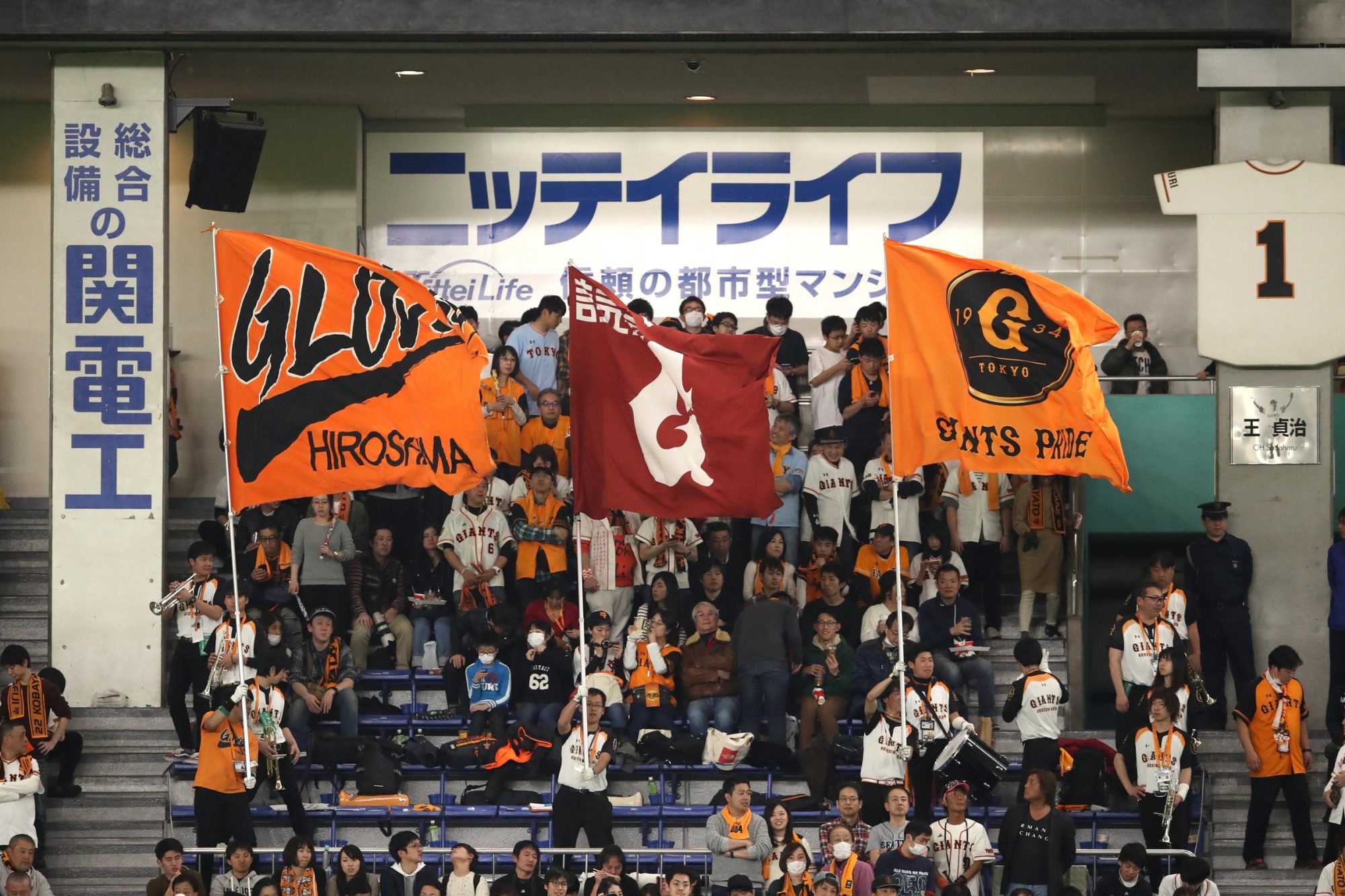
|
On this day 45 years ago: The Giants and Padres announced plans to play in Tokyo, only to have San Francisco players scuttle the trip. Nowadays, international play in MLB—and every other major U.S. sports league—is the subject of accelerating business interest, and it is also a matter of formal bargaining with the MLB Players Association. MLB just returned from a trip to South Korea, and games in Tokyo to start the 2025 season are already in the existing labor deal, with the Dodgers and Cubs reportedly set to be the participating teams.
But decades ago, such global efforts were pursued more casually and sporadically. As the San Francisco–San Diego series for 1980 was coming together and was even announced publicly, Giants owner Bob Lurie still left the matter up to his players, who turned down the plan. Though several individual MLB teams conducted offseason tours in Japan between the ’50s and the early ’80s, MLB’s presence in the country would require additional time to build up, as the offseason MLB Japan All-Star Series didn’t begin until ’86, and the league’s first regular-season games there didn’t happen until 2000.
|
|
- Fox will nationally televise both Ohio State’s and Michigan’s spring games for the first time.
- A Capital One “Chuck Blimp” will be present for Charles Barkley at the Final Four in Phoenix. Check it out.
- North Dakota leads the nation with an average of nearly 12,000 fans at its home hockey games, while Michigan State averages 6,500. The NCAA will host its regional at a 2,500-seat community ice center in Missouri, contributing to StubHub’s average ticket price of more than $1,000.
|
|
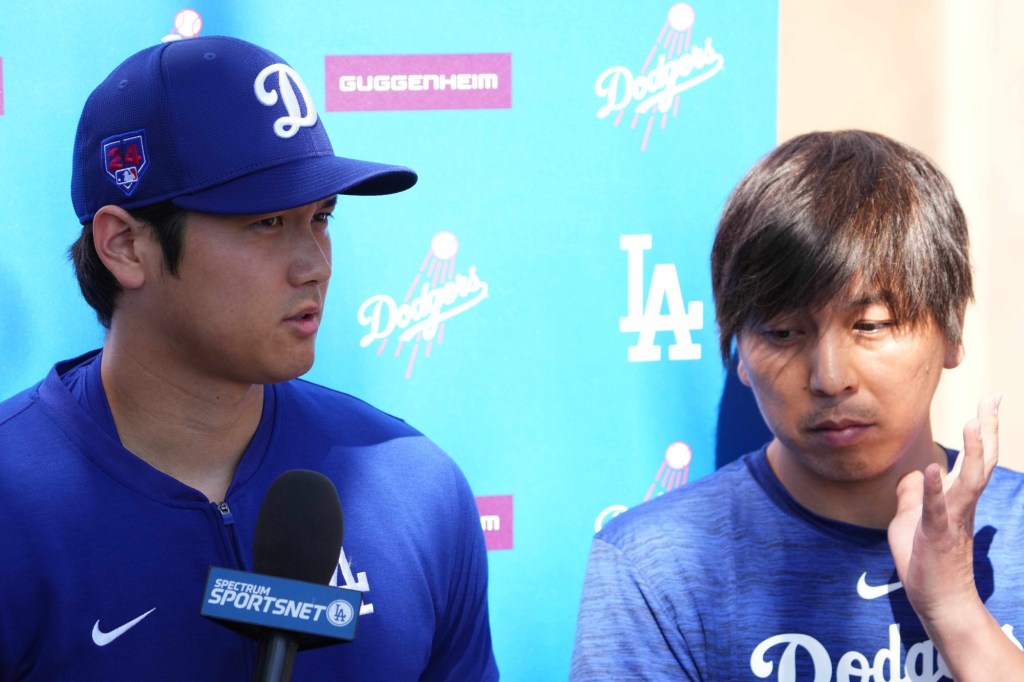 | The MLB superstar insists his former translator has engaged in ‘theft and fraud.’
|
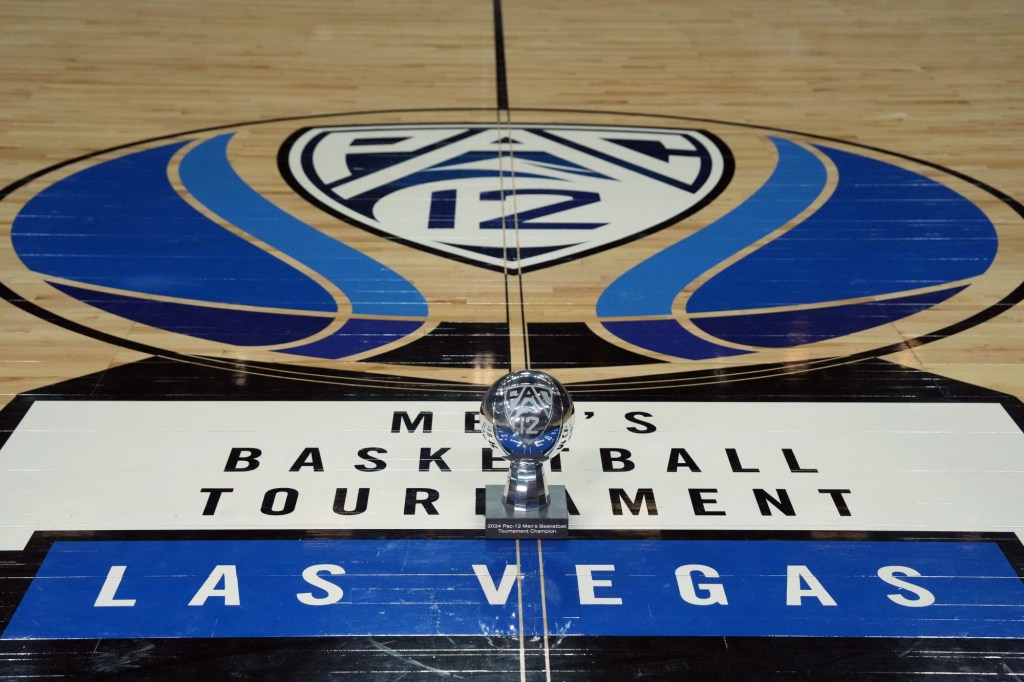 | The settlement resolves a lawsuit brought last fall. |
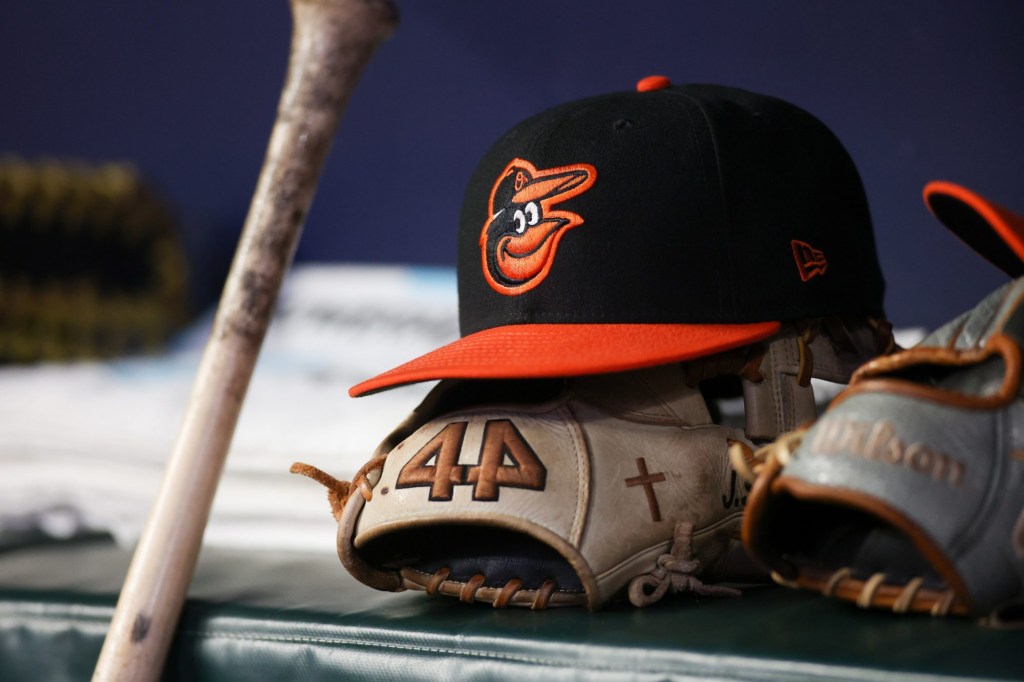 | The longtime Orioles owner boasts an extensive legacy impacting the team and city.
|
|
|










